#russo georgian war 2008
Photo
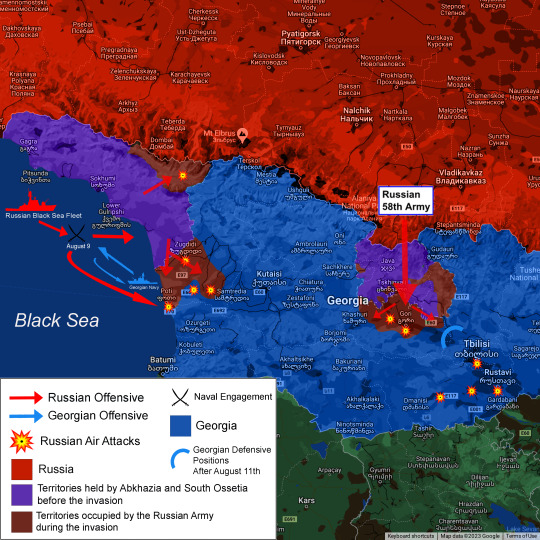
Map of the Russo-Georgian War, 2008.
70 notes
·
View notes
Text
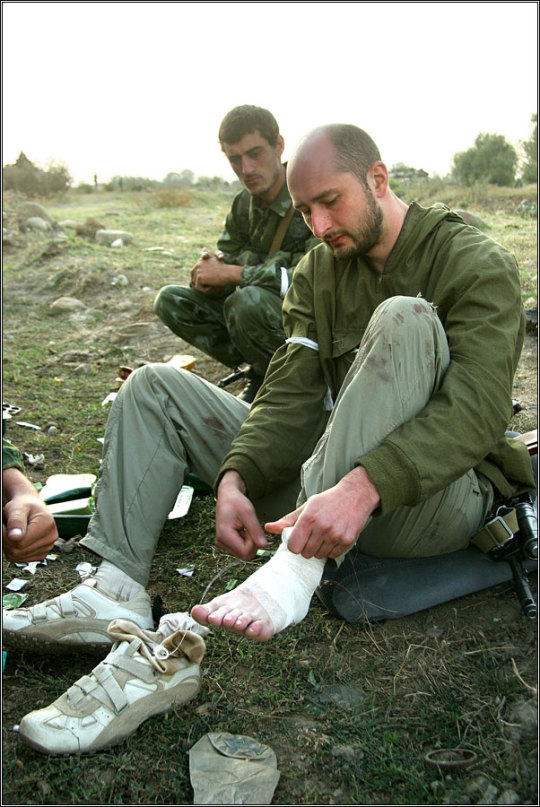
12/08/2008
Грузия, окраина Земо-Никози, в ожидании штурма.
#аркадий бабченко#бабченко#фото#фотоархив#russo-georgian war#war of august#2008#война 08.08.08#российско-грузинская война#2008 Russo-Georgian War#грузия#Russian invasion of Georgia#paramilitary
0 notes
Text
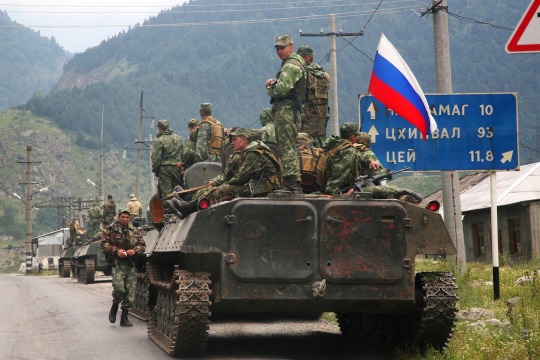
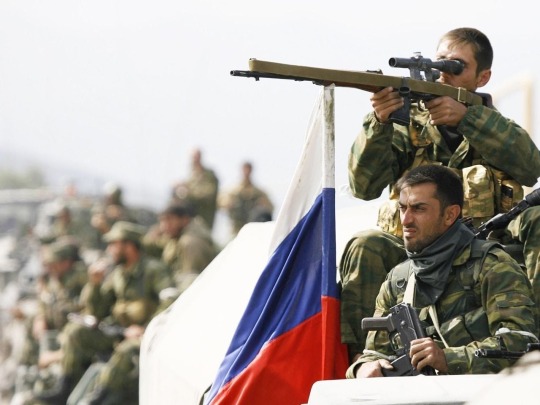
Russo-Georgian War - August 8, 2008
32 notes
·
View notes
Photo
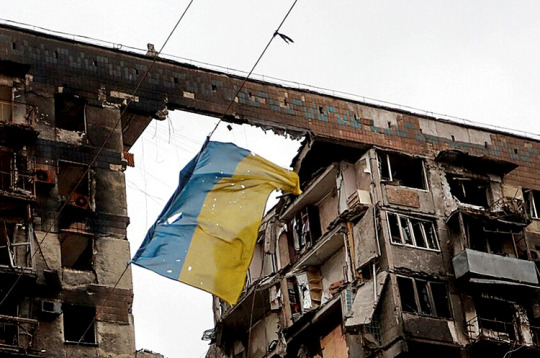
The date of 24 February is a terrible date for every Ukrainian and every decent person. Today is the anniversary of a full-scale invasion russia in Ukraine.
Many experts believed that russia would be able to capture Ukraine in a maximum of 10 days. But we were able to hold on. Now the Ukrainian are fighting for our freedom and independence.
Our ZSU give up their lives to protect othersю Unfortunately, the price of our freedom is too high. But the cost of defeat will be many times higher.
You can help Ukraine win this war.
How to help the Ukrainian army you can read here: Come Back Alive
And now...
In this publication, I want to remind the whole world what Ukraine experienced during the year of the bloody war. And I want to once again remind you the real face of the “russian peace” is destructions, fear and death.
Warning: This publication contains images and details readers might find distressing
In fact, this war began in 2014, when russia annexed Crimea and seized Donetsk and Luhansk regions. It is also true that russia planned military aggression against Ukraine in advance. Even if there had been no Revolution of Dignity (also known as the Maidan Revolution or the Ukrainian Revolution), putin would have found another excuse to invade Ukraine.
If you are interested in learning more about those events, you can check out this articles:
Conflict in Ukraine’s Donbas: A Visual Explainer
The invisible war: 8 years of battles in Donbas
10 facts you should know about russian military aggression against Ukraine
How the Revolution of Dignity changed Ukraine: Ten achievements
Revolution of Dignity (WIKI)
Of course, putin and his propaganda machine have always denied putin's aggressive actions towards Ukraine and other countries (for example the war in Abkhazia, the second Chechen war, the Transnistria conflict, the 2008 russo-Georgian war and so on).
Now Putin's propaganda machine is completely crazy and is talking fierce nonsense. So, in this there is absolutely nothing surprising. Do you know why? All because the propagandists hey more often than not repeat exactly what mr.asshole believes.
I recommend watching the putin's address to the Ukrainians before the start of a full-scale invasion on February 2022 [HERE].
Below are some quotes from the video:
“The Ukrainian army is waiting to get into NATO. … The West has explored the territory of Ukraine as a future theater, future battlefield, that is aimed against Russia.“
“Now, almost every day, they [Ukrainian military forces] are shelling settlements. They have amassed large troops. They are using vehicles and other heavy machinery. They are torturing people, children, women, elderly people. It does not stop. We have seen no end to it.”
It's an amazing mixture of bullshit and senile dementia. Thanks a lot to Michael Rossi Poli Sci for adding eng subtitles to this video. This speech should be recorded in history. You can also read a wonderful article by Max Fischer, in which he analyzed this putin's speech:
Word by Word and Between the Lines: A Close Look at Putin’s Speech

Ukraine: civilian casualties
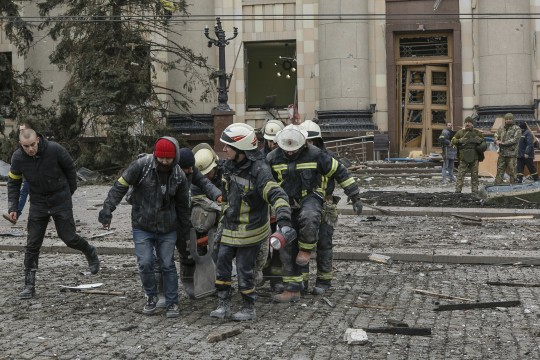
Since the beginning of the full-scale invasion, the actions of the russian occupants have resulted in the death of at least 8,006 Ukrainian civilians, and 13,287 injuries.
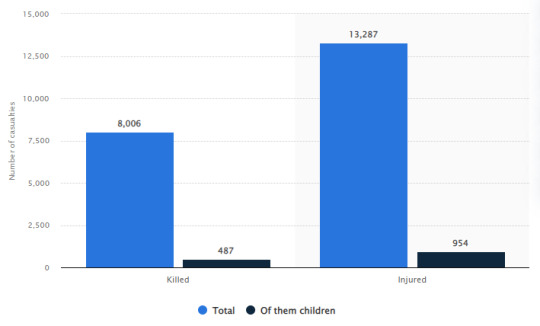
[Source 1]
[Source 2]
[Source 3]
P.S. It is impossible to establish the exact number of injured due to active hostilities and the temporary occupation of part of the territory of Ukraine
Ukraine: Children of war
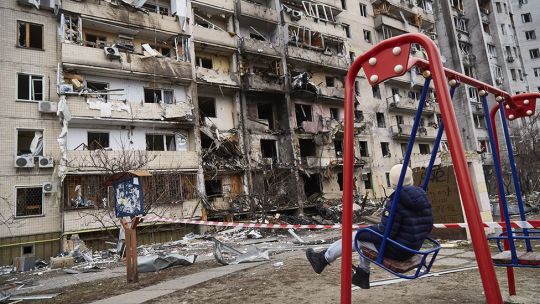
At least 461 children have been killed and 927 children have been wounded by the russian army forces since the beginning of the war.

[Source]
P.S. It is impossible to establish the exact number of injured children due to active hostilities and the temporary occupation of part of the territory of Ukraine
Ukrainian refugees
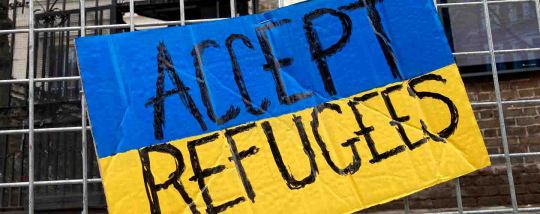
Headline statistics. The UNHCR records 8,087,952 refugees from Ukraine across Europe as of 20 February 2023. This amounts to around 20% of the Ukrainian population (estimated by Eurostat as at 2021).
4,863,513 refugees have registered for temporary protection in Europe.
The number of people who fled Ukraine since February 24 is estimated at 18,843,973, while 10,438,840 have returned to the country since February 28.
90% of Ukrainian refugees are women and children, while most Ukrainian men age 18 to 60 are banned from leaving the country
The vast majority of refugees initially entered neighbouring countries to the west of Ukraine (Poland, Slovakia, Hungary, Romania, and Moldova). Around 3 million people then moved further west to other European countries.
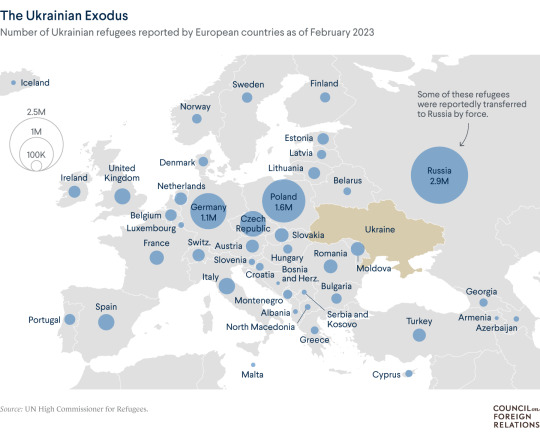
[Source 1]
[Source 2]
[Source 3]
[Source 4]

- The biggest tragedies of the war -
9 March 2022 - Mariupol hospital airstrike
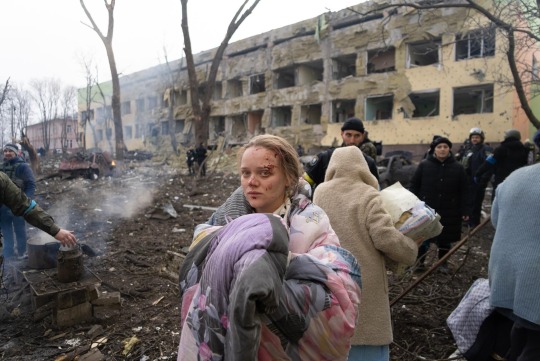
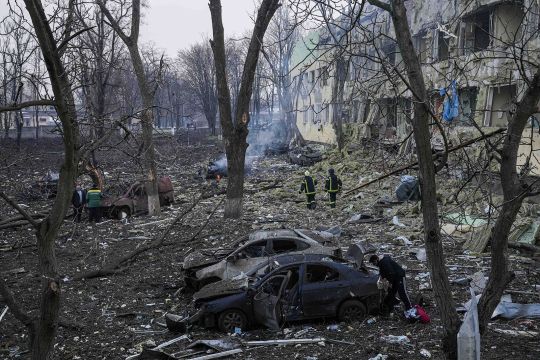
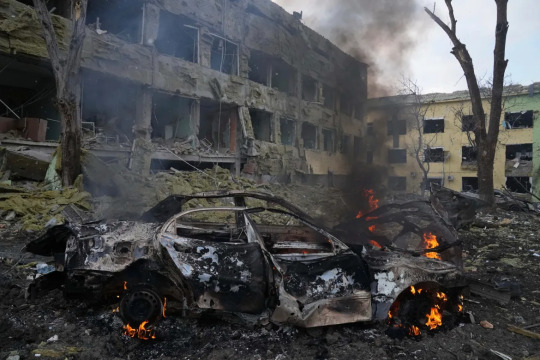
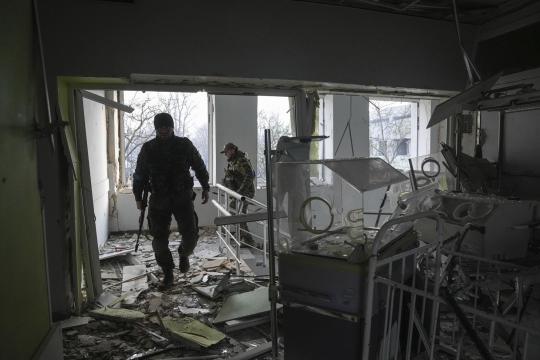
At least 5 people were killed and at least 16 were wounded during the airstrike. A pregnant woman and her baby have died next day after russia bombed the maternity hospital
16 March 2022 - Mariupol theatre airstrike
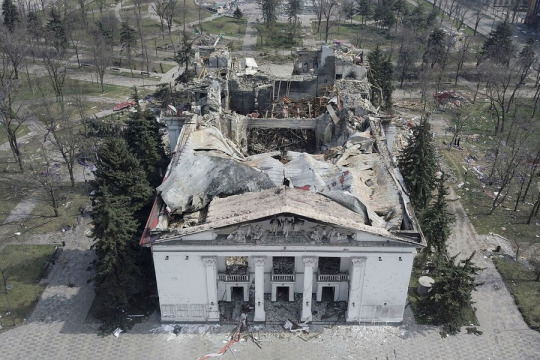
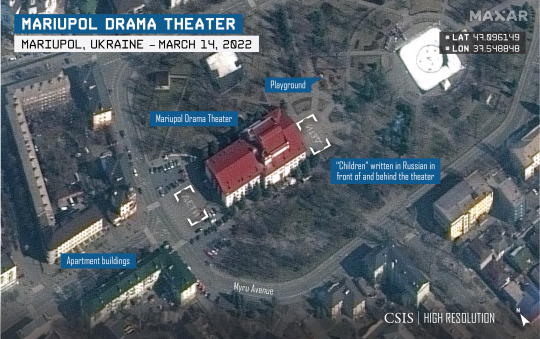
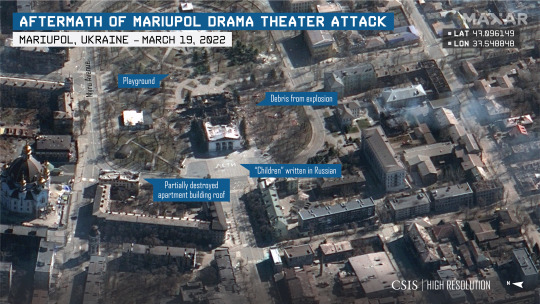
The russian armed forces bombed the Donetsk Academic Regional Drama Theatre in Mariupol, Ukraine. It was used as an air raid shelter during the siege of Mariupol, sheltering a large number of civilians. Associated Press reported that around 600 civilians were killed in the Russian airstrike both inside and outside the theatre building.
2 April 2022 - The Bucha massacre
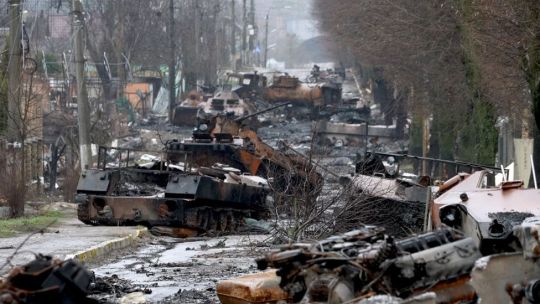
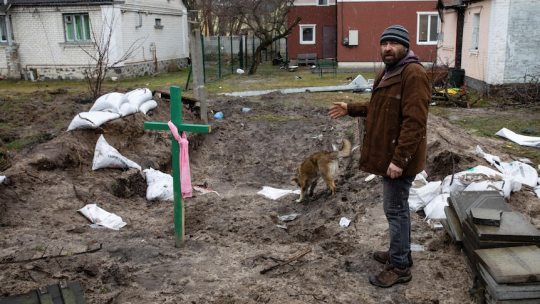
Photographic and video evidence of the massacre emerged on 1-2April 2022 after russian forces withdrew from the city
More than 650 were shot dead by russian soldiers. As of 13 June 2022, Ukrainian authorities said that 1,316 bodies had been uncovered in Kyiv Oblast including Bucha since the Russian withdrawal. The same day seven more victims were also recovered from a forest grave.
According to the mayor of Bucha Anatoly Fedoruk, just in the first day after Bucha was liberated, local authorities collected 280 bodies and buried them in mass graves. On March 12, it was reported that the citizens of Bucha buried 57 bodies in another mass grave, near a local church.
Below is a satellite image of the graves in Bucha (Supplied: Maxar Technologies/ABC)
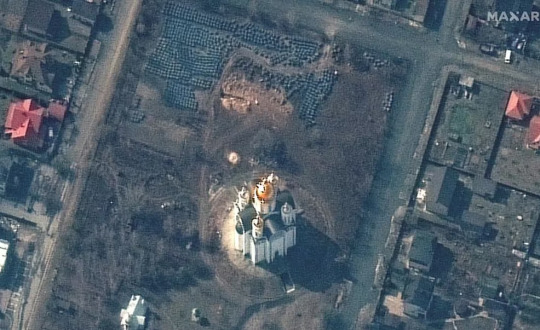
At least 20 bodies seen in one street in town near Kyiv. Many of the victims shot by the aggressors. Their hands were tied.
On 8 August 2022, officials released a count of civilian deaths in the town of Bucha alone: 458 bodies, 419 with signs of shooting, torture, or violent trauma, and 39 apparently of natural causes but being scrutinized for their relationship to the Russian occupation. 366 were male, 86 female, and five of indiscernible gender due to their condition. Nine were children. 50 bodies remained unidentified, along with body parts and ash
8 April 2022 - Kramatorsk railway station attack
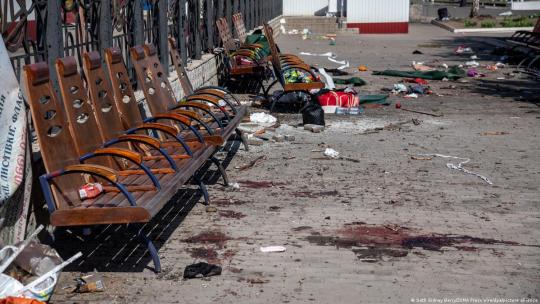
The strike killed 60 civilians (including seven children) and wounded more than 110.
27 June 2022 - Kremenchuk shopping mall attack
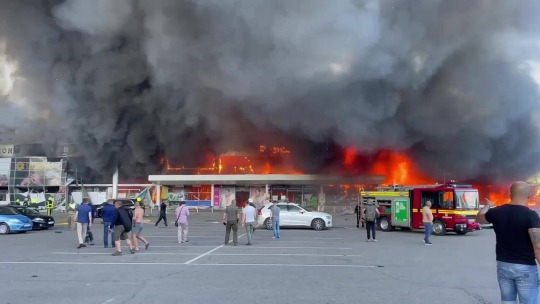
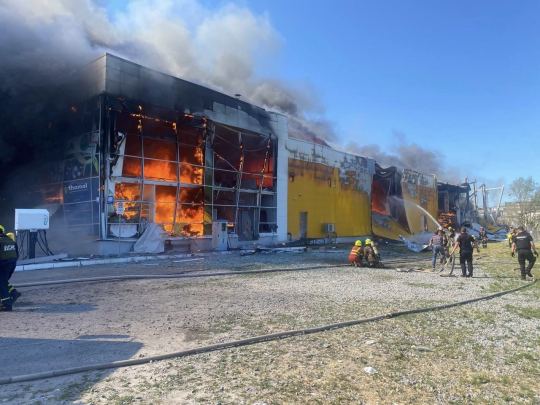
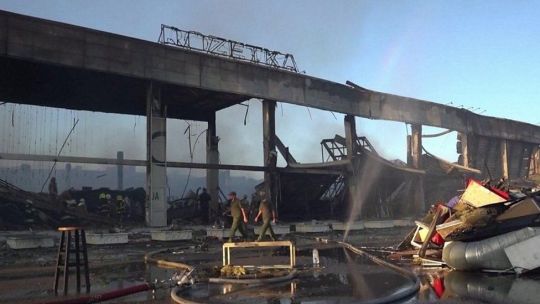
russian invaders launched a missile attack on a shopping and entertainment center in the city of Kremenchuk, Poltava region, where at that moment there were over 1,000 civilians.
A fire broke out and the attack killed at least 20 people and injured at least 56.
14 July 2022 - Vinnytsia missile strike
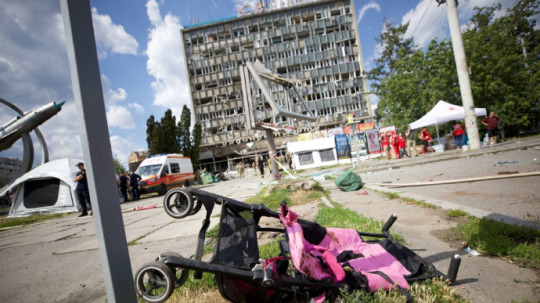
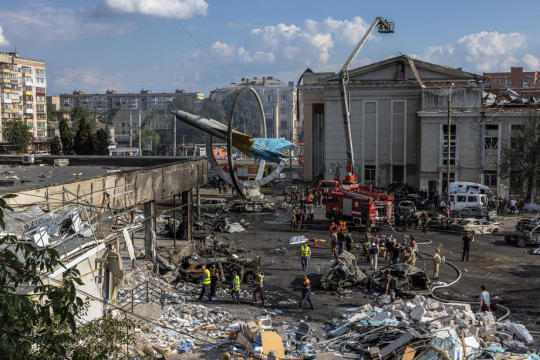
Russian missiles struck the city of Vinnytsia in central Ukraine, killing at least 23 people, including 3 children.
29 July 2022 - Olenivka prison massacre
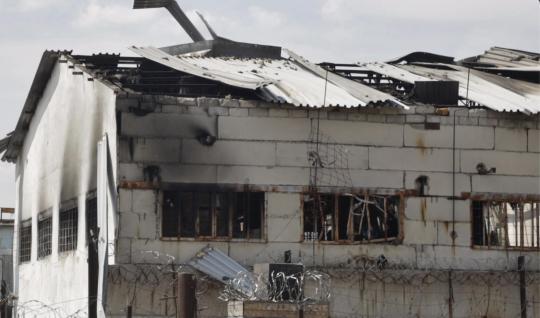
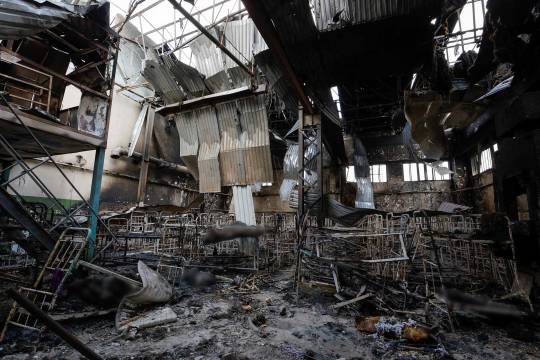
On 29 July 2022, during the Russian invasion of Ukraine, a building housing Ukrainian prisoners of war in a Russian-operated prison in Molodizhne near Olenivka, Donetsk Oblast, was destroyed, killing 53 Ukrainian prisoners of war (POWs) and leaving 75 wounded.
The prisoners were mainly soldiers from the Azovstal complex, the last Ukrainian stronghold in the siege of Mariupol.
10 September 2022 - Battle of Izium
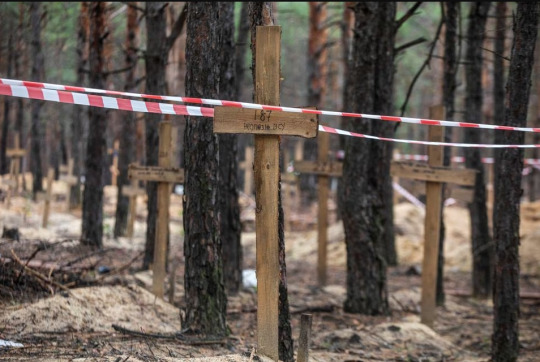
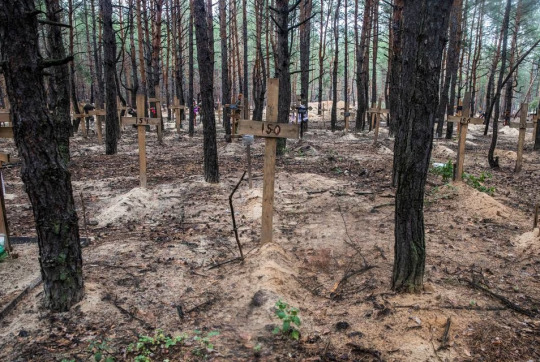
When Ukrainian forces recaptured the town during the 2022 Ukrainian Kharkiv counteroffensive and local mass graves with 440 bodies were found.
10 October 2022 - russian massive rocket strikes of Ukraine
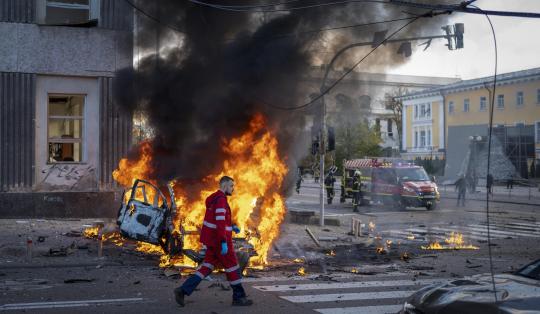
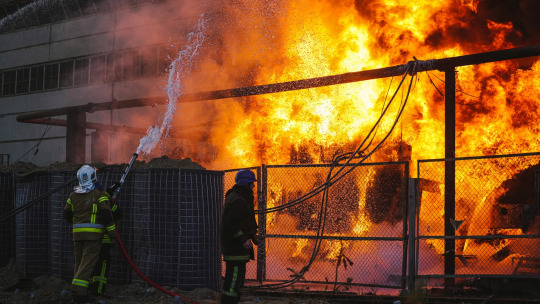
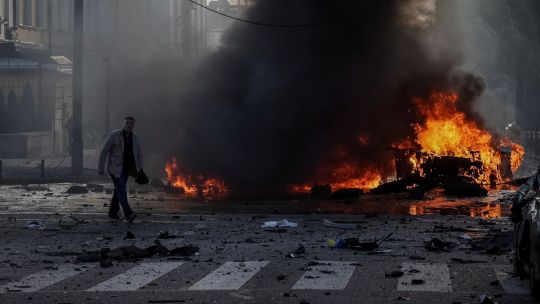
11 important infrastructure facilities in 8 regions including the city of Kyiv were damaged as a result of the strikes. Around 30% of the energy infrastructure in Ukraine had been hit by the missile attacks.
Russian missiles hit at least 14 regions of which the most intense were in Kyiv. Explosions were reported in Lviv, Ternopil and Zhytomyr in Western Ukraine; Kyiv, Dnipro and Kremenchuk in Central Ukraine; Zaporizhzhia in Southern Ukraine; and Kharkiv in Eastern Ukraine.
As a result of rocket strikes on energy facilities, many cities went into a blackout. Hot water also stopped running in apartment buildings.
At least 14 people have died and another 97 have been wounded as a result of russian massive rocket strikes.
14 January 2023 - Strike on residential building in Dnipro
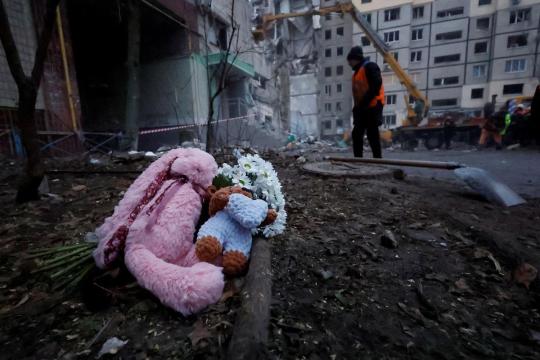
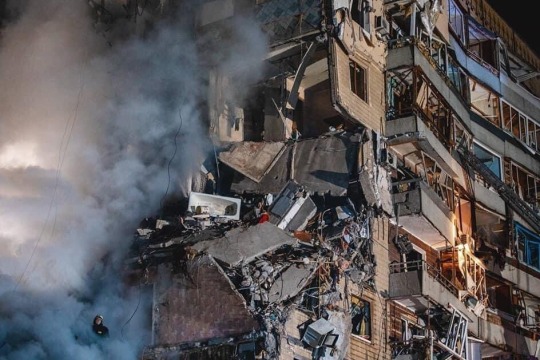
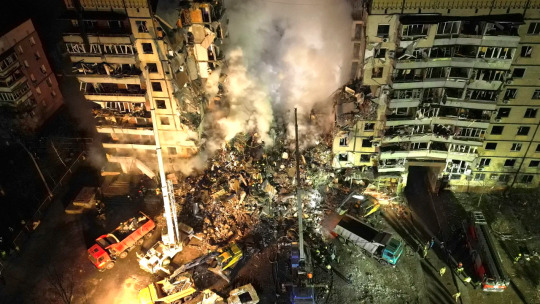

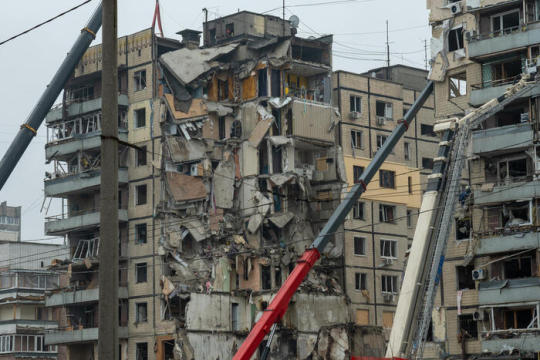
On 14 January 2023 at about 3:30 p.m., a Russian Kh-22 type missile hit Ukrainian nine-story residential building in Dnipro.
The missile strike killed 46 people and wounded nearly 80, among them 12 children
The strike destroyed 72 apartments and damaged another 230. The destruction left about 400 people homeless.

Above, I told you only about the most famous war crimes of Russia. But killings of Ukrainians and shelling of cities happening every day. Unemployment in my country is about 30%. Many cities and villages were razed to the ground. The lives of millions of my countrymen were destroyed.
This is what happens when a crazy dictator decides to conquer foreign lands. We must stop putin as soon as possible!
***
Слава Україні та слава ЗСУ!
Низький уклін усім українським захисникам, ви наші герої <3
57 notes
·
View notes
Text
At the National Opera of Ukraine in Kyiv recently, I watched a performance of an opera by the Ukrainian composer Mykola Lysenko. The work, charming and comic and an escape from the grimness of Russian missile attacks, is called Natalka Poltavka, based on a play by Ivan Kotliarevsky, who pioneered Ukrainian-language literature in the late-18th and early-19th centuries. Operas by Verdi, Puccini and Mozart, and ballets such as Giselle and La Sylphide, are on the playbill, despite the almost daily air raid sirens. But there is no Eugene Onegin in sight, nor a Queen of Spades, and not a whisper of those Tchaikovsky staples of ballet, Sleeping Beauty or Swan Lake. Russian literature and music, Russian culture of all kinds, is off the menu in wartime Ukraine. It is almost a shock to return to the UK and hear Russian music blithely played on Radio 3.
This absence, some would say erasure, can be hard to comprehend outside Ukraine. When a symphony orchestra in Cardiff removed the 1812 Overture from a programme this spring, there was bafflement verging on an outcry: excising Tchaikovsky was allowing Vladimir Putin and his chums the satisfaction of “owning” Russian culture – it was censorship, it was playing into Russia’s hands. Tchaikovsky himself was not only long dead, but had been an outsider and an internationalist – so the various arguments went. It took some careful explanation to convey that a piece of music glorifying Russian military achievements, and involving actual cannons, might be somewhere beyond poor taste when Russia was at that moment shelling Ukrainian cities – particularly when the families of orchestra members were directly affected.
In fact, such moments have been rare in western Europe. Chekhov and Lermontov continue to be read and Mussorgsky to be performed. Russian culture has not been “cancelled” as Putin claims, and Russian-born musicians and dancers with international careers continue to perform in the west – assuming they have offered a minimum of public deprecation of the killing and destruction being visited on Ukraine. Only the most naive would decry the removal of Valery Gergiev from international concert programmes. The conductor, who is seen as close to Putin, backed the Russian annexation of Crimea in 2014 (unrecognised by most UN countries), has declined to condemn the current full-scale invasion of Ukraine, and has a history of using his artistic profile in the service of the Russian state, such as conducting concerts in Russian-backed South Ossetia in 2008 in the wake of the Russo-Georgian war.
Inside Ukraine, though, things look very different. For many, the current war with Russia is being seen as a “war of decolonisation”, as Ukrainian poet Lyuba Yakimchuk has put it – a moment in which Ukraine has the chance to free itself, at last, from being an object of Russian imperialism. This decolonisation involves a “total rejection of Russian content and Russian culture”, as the writer Oleksandr Mykhed told the Lviv BookForum recently. These are not words that are comfortable to hear – not if, like me, you spent your late teens immersed in Tolstoy’s Anna Karenina and Chekhov stories; not if you have recently rekindled your love of Russian short fiction via George Saunders’ luminous book, A Swim in the Pond in the Rain; not if you adore Stravinsky and would certainly be taking a disc of The Rite of Spring to your desert island.
The context for this rejection has to be understood, though: Ukrainians are emerging from a history in which the Russian empire, and then the Soviet Union, actively and often violently suppressed Ukrainian art. This has worked in a number of different ways. It has included the absorption of numerous Ukrainian artists and writers into the Russian centre (such as Nikolai Gogol, or Mykola Hohol in Ukrainian), and the misclassifying of hundreds of artists as Russian when they could arguably be better described as Ukrainian (such as the painter Kazimir Malevich, who was Kyiv-born but Russian, according to the Tate). It has meant that writing in Ukrainian has at times been proscribed – Ukraine’s national poet, Taras Shevchenko, was banned from writing at all for a decade by Tsar Nicholas I. This silencing has encompassed the extermination of Ukrainian artists, like the killing, under Stalin, of hundreds of writers in 1937, known as “the executed renaissance”. Behind all of this stands horrific events such as the Holodomor, the starvation of about 4.5 million Ukrainians in 1932-33 in their forced effort to produce grain on Stalin’s orders.
This history places Ukraine in a very different position in relation to Russian culture than, say, Britain found itself in relation to German and Austrian art during the second world war, when Myra Hess programmed Mozart, Bach and Beethoven in her National Gallery concerts during the Blitz. “We have had cultural occupation, language occupation, art occupation and occupation with weapons. There’s not much difference between them,” the composer Igor Zavgorodniy tells me. In the Soviet period, Ukrainian culture was allowed to be harmlessly folksy – and Ukrainians, caricatured as drunken yokels dressed in Cossack trousers, were often the butt of belittling jokes. But Ukraine was not expected or allowed to carry a high culture of its own. At the same time, Russian artistic achievement was lauded as the very apex of human greatness. “We were raised in a certain piety towards the Russian literature,” explains the playwright Natalya Vorozhbit, who was educated in the Soviet period. “There wasn’t such piety towards any other literature.”
Putin himself has effectively doubled down on all this through his constant insistence, in his essays and often rambling speeches, that Ukraine has no separate existence from Russia – no identity, no culture at all, except as an adjunct of its neighbour. Indeed, his claim of Russia’s cultural inseparability from Ukraine is one of his key justifications for invasion. At the same time the Russian instrumentalisation of its artistic history is breathtakingly blatant. In occupied Kherson, billboards proclaiming it as a “city with Russian history”, show an image of Pushkin, who visited the city in 1820. Ukrainian artists also object to how, in a more general way, the projection of Russia as a great nation of artistic brilliance operates as a tool of soft power, a kind of ambient hum of positivity that, they would argue, softens the true brutality of today’s invasion. In Ukraine, there is a generalised cry of “bullshit” in relation to the myth of the “Russian soul”.
Some Ukrainians I speak to hope that one day, beyond the end of the war, there will be a way of consuming Russian literature and music – but first the work of decolonisation must be done, including the rereading and rethinking of classic authors, unravelling how they reflected and, at times, projected the values of the Russian empire. In the meantime, “My child will be perfectly all right growing up without Pushkin or Dostoevsky,” says Vorozhbit. “I don’t feel sorry.”
For many Ukrainians I encounter, the time for Russian literature will come again – when it can be critically understood as simply another branch of world culture, and as neither an unduly oppressive, nor overwhelming, force. At the National Opera House, I ask the choreographer Viktor Lytvynov when he thinks Tchaikovsky – a composer he loves – will be back on the programme. “When Russian stops being an aggressor,” he says. “When Russia stops being an evil empire.”
70 notes
·
View notes
Text
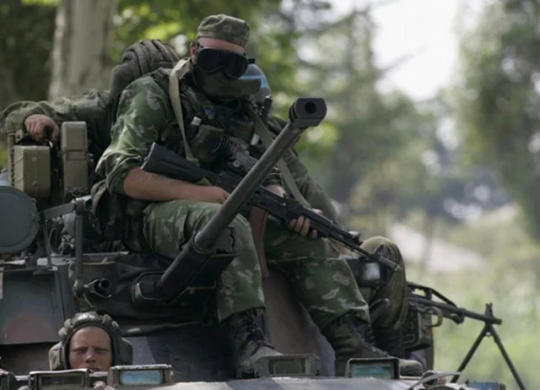
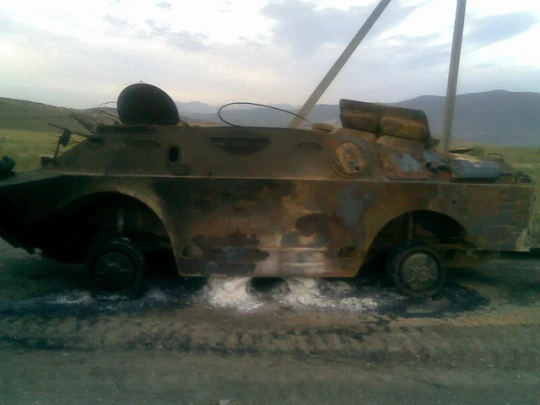
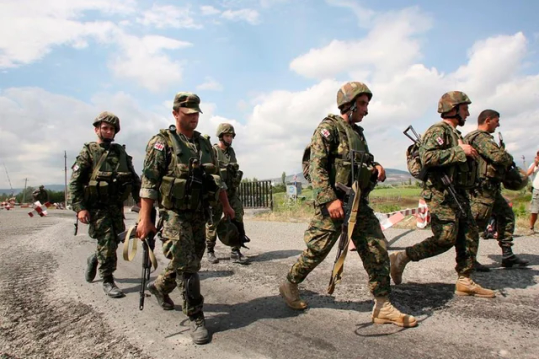
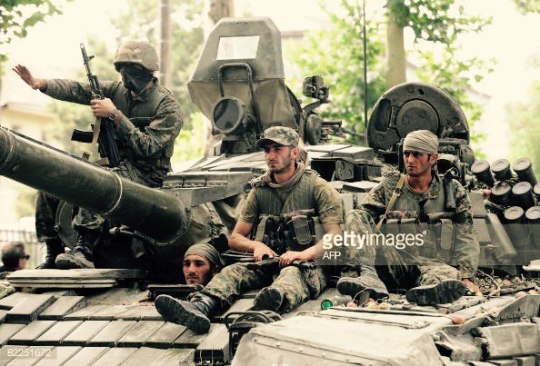
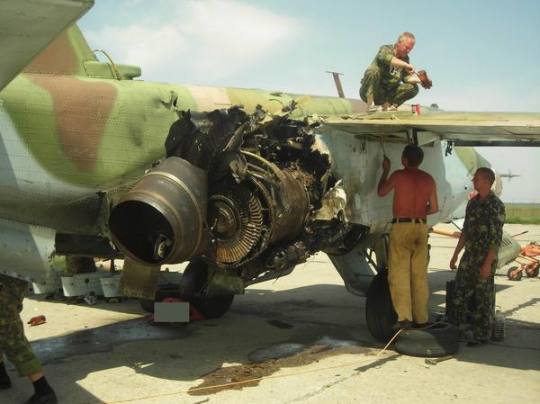
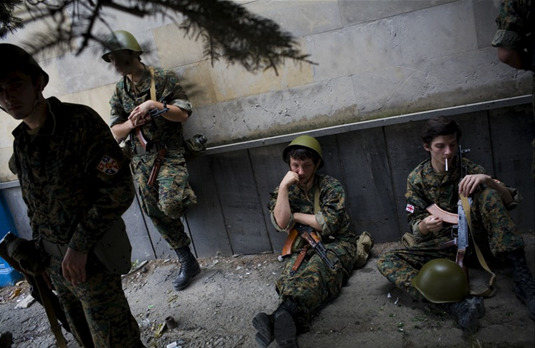
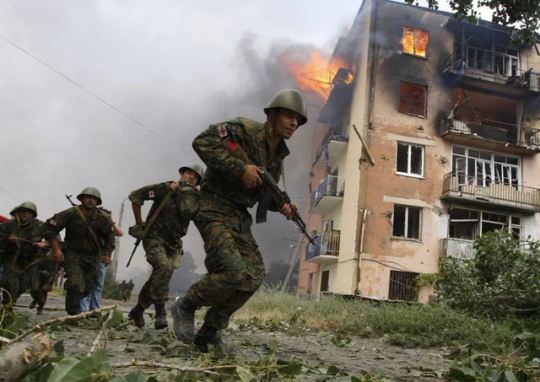
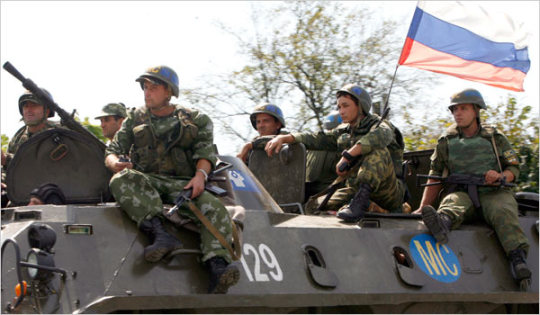
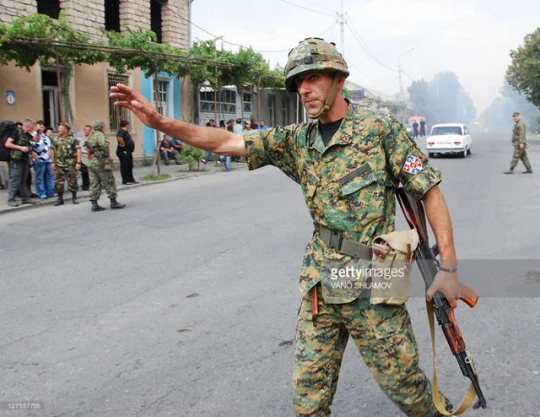
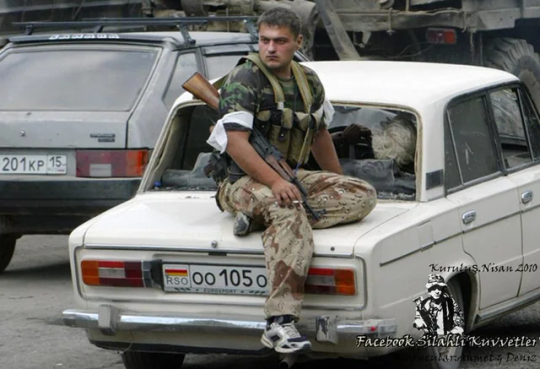
2008 Russo-Georgian War
7 notes
·
View notes
Text
United by music my ass
So the whole thing was a mess. My aftermath thoughts are these
UK made me nauseous for how much it overshadowed Ukraine again and again. And fun fact, this wasn't the first time a country couldn't host and UK in particular stepped in. Like, it happened multiple times before.
"Look at these cool Ukraine places you can't visit and then oh a British place you CAN visit!!!"
One question. During the entire thing, has any of the hosts said a few concrete ways people at home can help Ukraine? Said any association you could donate to? Gave phone numbers to call? Anything at all I may have missed? I mean there was time to include that lil 10 seconds ad about Moroccan oil or whatever before the start of the evenings.
I fucking KNEW they would have made someone sing Imagine. And that was nauseating in itself. Mahmood looked like he was dissociating for the whole thing tho lmao
Making an Israel old entry perform two seconds AFTER imagine? A... Choice.
Also a choice the enormous amount of points that the jury gave to Israel on a year that the winning country couldn't host because of the war affecting them.
And on that note, these couple years wasn't the first time Russia launched their ass in a fucking conflict with an European country. Hello? 2008 Russo-Georgian war? Georgia is 20% fucking occupied by Russia!
And in 2009 what did Eurovision do? Said that "We don't wanna Put in" entry by Georgia was too political!!! Hello?
So why, on earth, is Israel still allowed to participate? People talk shit about Australia not being in Europe but compared to Israel I'll fucking take the Aussies and I don't even particularly like them !! And why, on earth, they thought the unicorn song was decent?
Next point. Fucking. Jury. Votes.
Do you want to know as an example the average age of Italy's jury? When I read it on Twitter I didn't believe it so here's the math!
(70+ 55+60+64+37) ÷ 5 = 57
No comment.
"united by music" let's be real you're united by the money and having the 60th anniversary of Abba + a previous winner that was involved in the ost for Euphoria, a tv series that was a massive success, is easy marketing.
Onto the next point, way too many countries were robbed. Czechia? Slapped. Germany brought for once something to the table and still got less points than whatever TikTok bullshit UK had going on. Absolute robbery. Could it have more metal screaming? It can always have more metal screaming but it was still serving cunt.
I don't even wanna mention Croatia. I'm so tired of people that treat Eurovision like every other fucking song contest, WE DONT NEED STONED SIA, I was for two minutes on Twitter and god the takes on that app. Just shut it down already. "Honestly this year was underwhelming" girl go back buying polaroids of Jimin. This wasn't made for you.
Croatia is how you MAKE a song with a message relevant to the shit that's going on in europe. Switzerland is how you DONT. Croatia was fun, parodying, putting on an apparent nosense and punk old men in drag, and THATS how it's done, what do you guys want more? Croatia was an Eurovision entry
What about Czechia message then? One question: did it sound like a boring ballad that any random British singer could make? No. Did it sound powerful and recognizable, with an identity behind it? Yes.
Ukraine this year? The cyberpunk was county, amazing, but Eurovision material? No. I've loved Ukraine entries in the past because they sang in their own language, which is already a +1 point regardless, AND included folk elements in the song. That flute thing they always have going on is DELIGHTFUL and EATS UP every single time. I love Eurovision because it exposes me to different sounds, different ways of singing. This is why I liked Moldova this year!
Anyway that's about it.
12 notes
·
View notes
Note
https://www.vice.com/en/article/3akdpy/anti-putin-militias-celebrating-attacks-on-russia-are-filled-with-neo-nazis
Is vice lying?
Putin punishes the neo-nazis in their troll farms if they don't blindly defend his child killing sprees.
And certainly don't pay any attention to all the Georgians he killed during his genocidal rampage through that sovereign fucking nation.
12 notes
·
View notes
Text
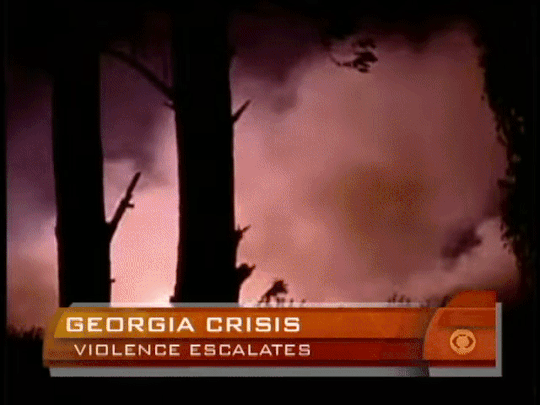
Russian forces strike targets in Georgia in support of South Ossetian separatists during the brief Russo-Georgian war.
Coverage by CBS
Unknown time, 2008/08/11
[x]
#broadcastnewsarchive#broadcast news#history#cbs#columbia broadcasting system#russo georgian war#south ossetia#pretty sure this footage is originally from russian state television#i think i remember CNN using the same clips but with an overlay in russian
3 notes
·
View notes
Text
14 years ago the Russo-Georgian war began, I don’t remember much because I was 4 years old (some of my classmates do, surprisingly). But in the 2008 similar thing happened like in the war of Abkhazia. Fighting, ethnical cleansing of Georgians, destroyed Georgian villages, Georgians that got kicked out of their own homes, of course let’s not forget about the bombing of non-military objects and a lot of war crimes. It’s a recent history, everyone remembers this or has seen the videos or pictures of it.
And now the same thing (If not worse) is happening in Ukraine.
Our government sucks honestly, their policy of not annoying Russia will most likely be the end of us. You’d think after seeing what Russia does in Ukraine would make them think about getting ready for war, just in case, you know no body seriously thought that Russia would attack Ukraine, but nope, they didn’t even install the sirens to let the people know that they should hide from bombs, which won’t really help, unless you live near subway or have basement, because you guessed it, we don’t have bomb shelters.
Also, if there was doubt (I don’t know if anyone was that naive) everyone knows now that most of the Russian tourists (overwhelming majority perhaps) came here just to avoid the discomfort from the sanctions, even if they say that they are political refugees. They are disrespectful, some of them yell at people at market just because they don’t know or don’t want to speak Russian, they whine when they hear Ukrainian songs, see Ukrainian writings or flags. Must be nice eating Khachapuri and Khinkali while Ukrainians die in war and other Russians just have to deal with sanctions, huh? When you ask them to share their opinions about the Ukraine, Abkhazia and Samachablo, about how people keep getting abducted near the occupied territories, they just say: “I am not into politics”.
Students during pandemic went back to their villages, because they could’ve had online lectures from the comfort of their home without worrying about the rent. But now universities want to start having the pre-pandemic type lectures, but they can’t, because prices of rent has skyrocketed due to the fact that Russian tourists are ready to pay more. And the government still refuses to make visa a must for Russian citizens. And some tourists are acting provocative on purpose so ethnic-based conflict could appear, so Russia would have a reason to defend it’s population. And if you disagree with our government officials they’ll say that you just want to have war with Russia and you are a xenophobe.
I should be happy that I was able to get normal scores on national exams and become a student, but I am not, because I worry about the future. You shouldn’t really worry about me, because the worse thing that would happen to me if the war will happen is my home will get blown up, my family most likely would leave for Israel in this case, but others aren’t so lucky.
2 notes
·
View notes
Text
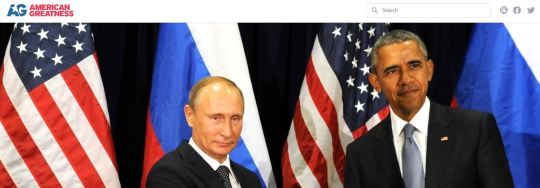
Ukraine and the Malevolent Legacy of the Obama-Biden Administration
The United States is shackled by a near decade of Russian reset and the aggression it invited on February 23, 2022.
By Victor Davis Hanson

October 9, 2022
During the current Ukrainian war, the media has created a mythology that the Left was tough on Vladimir Putin’s Russia. And thus, now it simply continues its hard-nosed efforts in Ukraine.
But nothing could be further from the truth. Aside from Biden’s original panic of evacuating American diplomatic personnel from Kyiv, offering a ride out of Ukraine for the Zelenskyy government that would have effectively collapsed his nation’s resistance, and hesitation in selling Ukraine offensive weapons, there is also a prior legacy that had done a great deal of harm.
Indeed, many of America’s current difficulties in Ukraine originate from the Obama-Biden Administration’s former disastrous policies toward Russia birthed between 2009-2016.
Remembering the Reset Disaster
Remember the initial premise of Russian “Reset”—the idea and the term were first used by Vice President Joe Biden (“It’s time to press the reset button”)—was based on the myth that the “cowboy” George W. Bush had been too tough on Putin after the 2008 Russo-Georgian War. To Biden and Obama, Bush had unduly sanctioned Vladimir Putin following his opportunistic absorption of South Ossetia in 2008 and attack on Georgia. And thus, the Russian dictator would easily then be wowed by Obama’s legendary charisma and charm from needless hostility to accommodation.
Accordingly, the reformist hope-and-change Obama Administration would rebuild a friendly relationship with Russia. Thereby they would win strategic help from Russia with Obama’s new ambitious agendas for Iran and Syria in remaking a more “equitable” Middle East. Translated that meant “balancing” the region. Thus, by weakening our former overdog allies in the Gulf and Israel while empowering our former underdog terrorist-sponsoring enemies in Tehran and Damascus, Obama sought to create strategic tension.
What followed was an utter disaster. Hillary Clinton in March 2009 at the comical “reset” ceremony in Geneva with Foreign Minister Sergey Lavrov greenlighted outright Russian aggression. In response Moscow’s policy was soon to be against whatever the United States was for. In the Russian mind, the more an appeasing Obama looked the other way at Putin’s cyberattacks or later the dual invasions in 2014 of eastern Ukraine and Crimea, the more Washington compensated for its impotence by shrill sermons and empty lectures on Russian human-rights violations.
For Putin, nothing was emptier than the loud moralistic harangues of the Obama-Biden Administration that was also carrying a mere twig. During those eight years, Russia, after a near half-century hiatus, was invited back into the Middle East as a “guarantor” that its client Syria’s WMD stockpile would be destroyed (it was not). Russia instead became a formable promoter of the Iranian, Hezbollah, the Assad regime, and Hamas axis, an obstacle to Israeli responses to cross-border terrorism, and a deterrent to any Western notion of preemptively destroying Tehran’s nuclear potential.
The Trump Hiatus
The irony is that while Trump was later smeared by the Obama-Biden Left as a “Russian asset” —in the words of former Director of National Intelligence James Clapper who himself had confessed to lying under oath to Congress—he managed to overturn the reset in comprehensive fashion.
Trump vacated an asymmetrical and calcified anti-missile treaty with Russia. He upped sanctions on Russian oligarchs. He ordered lethal retaliation against Russian mercenaries in Syria. He flooded global markets with cheap U.S. oil and gas at Russia’s expense. He eventually sent deterrent offensive weapons to Ukraine—once canceled by the Obama Administration. Trump upped the Pentagon budget and controversially jawboned NATO members to increase their defense expenditures. That effort in part explains why the alliance had more confidence and resources in 2022 to oppose Russian aggression than it would have at anemic 2016 funding levels.
In contrast, it was Hillary Clinton—and the American FBI—who hired Russian informants like Igor Danchenko and their conduit Christopher Steele to spread dirt during the 2016 election. The Russians likely feared the unpredictable “America First” Trump and were only too eager to see the Left lap up its concocted, seedy “Kompromat” on him.
Recall that the projectionist Secretary of State Clinton had earlier further appeased Russia when her State Department approved the sale of the North American company Uranium One’s uranium holdings to the Russian-government-controlled company Rosatom—the same company that recently stole the Ukrainian-owned nuclear plant at Zaporizhzhia, Europe’s largest nuclear generator. It was also about this same time when Hillary Clinton greenlighted the deal that Bill Clinton received a preposterous quid pro quo $500,000 speaking fee in Moscow from a Russian bank, while millions of dollars from Moscow-affiliated companies suddenly flowed into the Clinton Foundation coffers.
The New York Times headline succinctly summed up the Clinton-Russian trifecta of reset, appeasement, and aggrandizement as “Cash Flowed to Clinton Foundation Amid Russian Uranium Deal.”
How strange then that we now totter on the brink of a full-throttled war with nuclear Russia over Putin’s latest aggressions in Ukraine. All the while we apparently forget that the Trump Administration never colluded with Russia, was tough in action rather than verbiage with Putin, and thus remained the only one of the last four administrations during which Vladimir Putin did not invade a former Russian republic.
The Obama Russian Quid Pro Quo
Obama himself inadvertently outlined some of the parameters of the disastrous reset relationship in his infamous March 2012 hot-mic concessions to Russian President Dmitry Medvedev at a summit in Seoul, South Korea:
Obama: ‘This is my last election . . . After my election I have more flexibility.’
Medvedev: ‘I understand. I will transmit this information to Vladimir.’
Obama: ‘On all these issues, but particularly missile defense, this, this can be solved but it’s important for him to give me space.’
Medvedev: “Yeah, I understand. I understand your message about space. Space for you . . .”
Obama: ‘This is my last election . . . After my election I have more flexibility.’
Medvedev: ‘I understand. I will transmit this information to Vladimir.’
The implications of that exchange were never fully appreciated, although then presidential candidate Mitt Romney claimed at the time that the diminution of U.S. national security for Obama’s own 2012 political reelection interests should have disqualified his reelection effort. Mortgaging U.S. security interests to help a reelection campaign was certainly far more an impeachable offense than the Trump phone call.
So often it is also forgotten that the terms of the hot mic “deal” were eventually “solved” as Obama promised. The Russians did give “space” to candidate Barack Obama. And eight months later he was reelected—in part because of the perceived international quiet that the Obama appeasement policies had supposedly achieved.
Indeed, the Obama-Putin understanding may have postponed Russian invasions of Ukraine and Crimea until Obama was safely—and welcomely—reelected. As also promised, Obama did finalize his cancellations of missile defense by nixing the U.S., Polish, and Czech strategic initiatives. Note that lost network of anti-ballistic missile defense today might have been of value in offering Europe deterrence against Putin’s current nuclear bomb threats.
Russian appeasement and the Iran Deal
Yet even as late as 2015, as Putin was escalating his open-ended cyber-attacks on U.S. domestic targets, Vice President Joe Biden was still wedded to appeasing him:
Once we pressed that reset button in 2009, between then and 2012, we achieved a great deal in cooperation with Russia to advance our mutual interests and I would argue the interests of Europe—the New START Treaty that reduced our strategic nuclear arsenal by one-third; a vital supply route for coalition troops in and out of Afghanistan; at the United Nations Security Council, resolutions that pressured North Korea and Iran and made possible serious nuclear discussions in Tehran, which continue as I speak.
All of us, we all invested in a type of Russia we hoped—and still hope—will emerge one day: a Russia integrated into the world economy; more prosperous, more invested in the international order.
Had Biden not contributed to that fantasy of green-lighting Putin, he might not now be name calling the nuclear, wounded autocrat as a “killer” whom the president boasts should be removed—as he warns us that we are nearer to nuclear Armageddon than at any time in our history.
What explains the Obama-Biden serial denial of reality that their own appeasing of Russia was the height of folly? One reason is surely the crackpot notion that Russia had been seen as vital to the so-called Iran deal and related Middle East messes. Then as now, the Left believed that through Russian auspices it could massage Tehran into a nuclear deal and reset the entire Middle East in the bargain.
The result is an Orwellian scenario in which Biden still begs Russia’s aid to ensure an Iran deal, while believing his invaluable broker is an abject murderer who should be yanked out of office.
Indeed, the Obama-Biden disastrous fixation with courting Iran has had lots of unfortunate ripples for years. And some of them continue in our current conundrum in Ukraine.
In May 2014, remember, the Iranians with much braggadocio showed off a mockup of their reverse-engineered new RQ-170 drone. That once implausible feat was facilitated by the Iranians’ December 2011 downing of a U.S. Sentinel drone. At the time, a number of administration critics had blasted the Obama Administration for not immediately bombing all downed American drones to smithereens on Iranian soil to prevent Iranian reverse-engineering.
And now? One of the greatest worries during the Ukrainian offensive has been the sudden emergence of Russian-purchased cheap Iranian suicide drones. Few imagined that the low-cost imports would exhibit such a deadly sophistication in stealth, range, and targeting—and well beyond either Iran’s indigenous research and development, or Russia’s own available drone fleet. The origins of these Iranian drones can also be traced directly back to the Obama-Biden appeasement of Iran.
“Don’t Underestimate Joe’s Ability to
F–k Things Up.”
We are in a conundrum in Ukraine, all at once pursuing several mutually exclusive agendas:
cutting back our own energy production while beseeching illiberal third parties to up theirs to supply what we could but will not produce,
worrying about protecting Europe from Russia while demanding it become more aggressive toward Putin,
ensuring the EU has enough energy to survive the winter but doing so without relying on Russian gas or oil,
green-lighting Ukraine to expel every last Russian—including raids into Russia proper and hits on Russian citizens—as we warn Putin that his nuclear threats to Ukraine will earn him a strong but still unspecified U.S. counter-response—even as the Biden Administration insidiously assumes complete responsibility for arming, sustaining, and protecting Ukraine from nuclear Russia and as Zelenskyy urges America to consider preemptive first nuclear strikes against Russia.
ostracizing Russia from the international community while we beg it to be a good international citizen in helping us to reboot the Iran deal as it buys lethal American-fed Iranian drones.
The United States has few options in Ukraine not just because of the Biden Administration’s fiascos in Afghanistan that destroyed our deterrence or because of the Biden family syndicate’s years of corrupt money leveraging of Russian, Ukrainian, and Chinese interests that make Joe Biden vulnerable to pressures from all the major interests in the Ukraine mess.
It is also not just because the woke politicization of the U.S. military has cast global doubt on American military readiness. And it is not even because Biden deliberately has cut back on U.S. gas and oil production at a time of surging global demand and reduced capacity, thus enriching Putin and strangling Western economies.
Instead, we are shackled by a near decade of Russian reset and the aggression it invited on February 23, 2022. Obama and Biden long sought to placate Putin to help with their puerile Mideast agendas. They invited him into Syria. They made him the key player in their pursuit of the Iran deal. And they ignored his 2014 invasions of Eastern Ukraine and Crimea.
How ironic that we now find ourselves sending arms to protect Ukraine from reverse-engineered Iranian drones, beseeching in vain regimes to send us oil that we refuse to produce for ourselves, and having given up an Eastern European missile defense system to counter Putin’s nuclear threats—even as we coax both our enemies Tehran and Moscow into cementing a nuclear deal that will be as disastrous to our friends as it is to ourselves.
Victor Davis Hanson (amgreatness.com)
1 note
·
View note
Text
Events 8.13 (after 1900)
1905 – Norwegians vote to end the union with Sweden.
1906 – The all black infantrymen of the U.S. Army's 25th Infantry Regiment are accused of killing a white bartender and wounding a white police officer in Brownsville, Texas, despite exculpatory evidence; all are later dishonorably discharged. (Their records were later restored to reflect honorable discharges but there were no financial settlements.)
1913 – First production in the UK of stainless steel by Harry Brearley.
1918 – Women enlist in the United States Marine Corps for the first time. Opha May Johnson is the first woman to enlist.
1918 – Bayerische Motoren Werke AG (BMW) established as a public company in Germany.
1920 – Polish–Soviet War: The Battle of Warsaw begins and will last till August 25. The Red Army is defeated.
1937 – Second Sino-Japanese War: The Battle of Shanghai begins.
1942 – Major General Eugene Reybold of the U.S. Army Corps of Engineers authorizes the construction of facilities that would house the "Development of Substitute Materials" project, better known as the Manhattan Project.
1944 – World War II: German troops begin the pillage and razing of Anogeia in Crete that would continue until September 5.
1954 – Radio Pakistan broadcasts the "Qaumī Tarāna", the national anthem of Pakistan for the first time.
1960 – The Central African Republic declares independence from France.
1961 – Cold War: East Germany closes the border between the eastern and western sectors of Berlin to thwart its inhabitants' attempts to escape to the West, and construction of the Berlin Wall is started. The day is known as Barbed Wire Sunday.
1964 – Peter Allen and Gwynne Evans are hanged for the murder of John Alan West becoming the last people executed in the United Kingdom.
1967 – Two young women became the first fatal victims of grizzly bear attacks in the 57-year history of Montana's Glacier National Park in separate incidents.
1968 – Alexandros Panagoulis attempts to assassinate the Greek dictator Colonel Georgios Papadopoulos in Varkiza, Athens.
1969 – The Apollo 11 astronauts enjoy a ticker tape parade in New York City. That evening, at a state dinner in Los Angeles, they are awarded the Presidential Medal of Freedom by U.S. President Richard Nixon.
1973 – Aviaco Flight 118 crashes on approach to A Coruña Airport in A Coruña, Spain, killing 85.
1977 – Members of the British National Front (NF) clash with anti-NF demonstrators in Lewisham, London, resulting in 214 arrests and at least 111 injuries.
1978 – 150 Palestinians in Beirut are killed in a terrorist attack during the second phase of the Lebanese Civil War.
1990 – A mainland Chinese fishing boat Min Ping Yu No. 5202 is hit by a Taiwanese naval vessel and sinks in a repatriation operation of mainland Chinese immigrants, resulting in 21 deaths. This is the second tragedy less than a month after Min Ping Yu No. 5540 incident.
2004 – One hundred fifty-six Congolese Tutsi refugees are massacred at the Gatumba refugee camp in Burundi.
2008 – Russo-Georgian War: Russian units occupy the Georgian city of Gori.
2015 – At least 76 people are killed and 212 others are wounded in a truck bombing in Baghdad, Iraq.
2020 – Israel–United Arab Emirates relations are formally established.
0 notes
Note
1. i nearly opened this "hi maria!" before reading the side bar. 2. hi sean! do you have any book recs about the 2008 conflicts btwn georgia/russia/abkhazia/south ossetia? ty!
Oh, I would have still happily responded to Maria - I am Maria Callous and Maria Callous is me. :D
I don't know of a ton of English language ones (as unfortunately I am very monolingual and am not the best with other languages) and there aren't many that focus solely on the Russo-Georgian conflict, but generally tie it up in a broader analysis of Russia's actions, and there's just also a general lack of awareness of or focus on Georgia and much of the Caucasus and Eastern Europe in general (barring conflicts or other circs where the region penetrates the usual Western bubble).
All of that said! though:
A Little War That Shook the World: Georgia, Russia, and the Future of the West by Ronald Asmus
Georgia Diary: A Chronicle of War and Political Chaos in the Post-Soviet Caucasus by Thomas Goltz
Putin's Wars: The Rise of Russia's New Imperialism by Marcel H. Van Herpen
The Caucasus: An Introduction by Thomas de Waal
The Guns of August 2008: Russia's War in Georgia by Svante Cornell and S. Frederick Starr
4 notes
·
View notes
Text
Is Russia More Aligned with God’s Will than the United States?
October 14, 2013
By Michael Mickler, Professor of Church History, UTS
http://appliedunificationism.com/2013/10/14/is-russia-more-aligned-with-gods-will-than-the-united-states/
...
Second, Americans have incorrectly interpreted freedom. Again dating back to the Puritans, U.S. civil liberties have been securely anchored within a compass of moral values and the public good. America was great because she was good. However, in contemporary American society, freedom has come to mean the freedom to do most anything one wants so long as it doesn’t interfere with anyone else’s freedom to do most anything they want. As a consequence, the United States has become identified with moral decadence and individualism.
This returns us to the provocative question of whether, from a Unification viewpoint, America’s old adversary, Russia, is more aligned with God’s will than the United States. In a 1989 interview with Za Rubezhom, a Russian weekly, Rev. Moon stated, “through … efforts in favor of true democratization and true religious freedom, the Soviet Union will be able not only to keep up with the West but to overtake it.”
The Soviet Union, of course, is long gone, but Russia lives. And in an odd role reversal, it has taken positions over the past decade or longer that are more in accord with international norms in politics, traditional values in morality, and idealism toward the future than has the United States. This is evident in contrasting U.S. and Russian stances on matters related to: war and peace, mass surveillance programs, persecution of Christians in the Middle East, same-sex marriage, the Bering Strait crossing, and Korean reunification. ...
___________________________________________
Mickler wrote this article after Russia was involved in the following recent conflicts:
1991-1993 Georgian Civil War
1991-1992 South Ossetian War
1992-1993 Abkhazia
1992 Transnistria
1992 Ossetian-Ingush conflict
1992-1997 Tajikistani Civil War
1994-1996 Chechnya War 1
1999 Dagestan War
1999-2009 Chechnya War 2
2008 Russo-Georgian War
2009-2017 Insurgency in the North Caucasus
https://en.wikipedia.org/wiki/List_of_wars_involving_Russia
#Michael Mickler#Russia#Vladimir Putin#Sun Myung Moon#Applied Unificationism#Unification Church#Divine Principle
1 note
·
View note
Photo
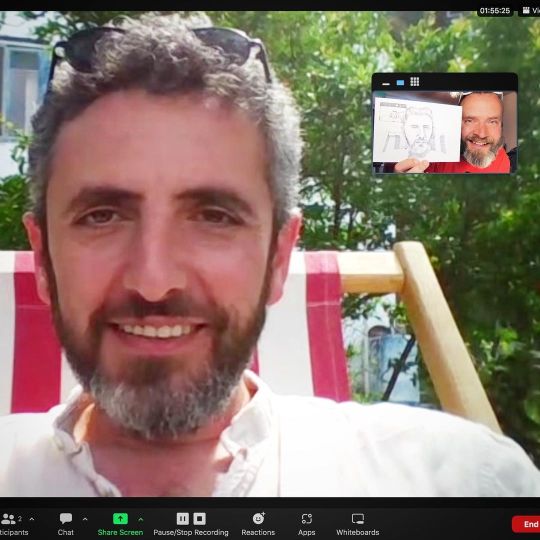
On Friday morning/afternoon I drew a portrait of Dimitri in Georgia, via Zoom, for my #NickDrawsNationals pandemic art project. This was my first drawing in over two months, so I felt out of practice and nervous. Dimitri was recommended to me by a Brighton artist friend, who “made a journalist” of Dimitri when he worked with her at a Tbilisi newspaper years ago. He joined me from the garden of his “dacha” summer house, chilling out in a deckchair with a cigarette and sunglasses. He told me a lot about Georgian culture, history and language, which I’d been mostly ignorant of. As a child, during the country’s Soviet era, he was part of the ‘Pioneers’ youth group. When the USSR collapsed, and Georgia fought for its independence in 1991, Dimitri remembers taking off his red Pioneers neckerchief and throwing it away. Although the revolution was peaceful it led to years of poverty and corruption before the nation emerged relatively prosperous on the other side. Dimitri worked as a journalist during the Russo-Georgian war of 2008. He wore a flak jacket and told me how terrifying the bombing was. He saw dead bodies. Witnessing warfare wasn’t scary in the moment – he was too pumped with adrenaline – but he had to detox in the aftermath with a holiday to Lebanon. He’s travelled around the Caucuses, and much of Europe. In fact, when we spoke he’d just driven back from a 300-guest wedding in Armenia, his first trip abroad since the pandemic. During lockdown, he found a new calling: making wine in the cellar of his city home! This is a crucial part of the nation’s culture and cuisine – the slanted arms of the Georgian Christian cross are based on vine-growing poles. Despite the tranquility of our portrait session, danger looms over the Russian border. Since ceding from the USSR, Georgia is seen as a rebel nation to be regained by Putin. Russia’s recent invasion of Ukraine has heightened these tensions. Many of Dimitri’s Russian friends are now exiled in Georgia. #nickdrawsneighbours #drawing #portrait #portraitdrawing #portraiture #birodrawing #ballpointpen #ballpointpenart #ballpoint #neighbours #sketching #artinlockdown #artinisolation #isolationart #NickDrawsNationals (at Portslade, West Sussex, United Kingdom) https://www.instagram.com/p/CfpLjC4oKvm/?igshid=NGJjMDIxMWI=
#nickdrawsnationals#nickdrawsneighbours#drawing#portrait#portraitdrawing#portraiture#birodrawing#ballpointpen#ballpointpenart#ballpoint#neighbours#sketching#artinlockdown#artinisolation#isolationart
1 note
·
View note
Link
Yesterday was a good day for world politics and so is today.
Today the European court confirmed that the violations carried out by Russia during the 2008 war amounted to ethnic cleansing of Georgians. We have been waiting for this ruling for over 12 years now.
39 notes
·
View notes